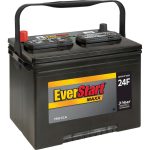When it comes to protecting your vehicle from the sun’s damaging rays, a high-quality car shade is an essential accessory. Not only does a good car shade help maintain a comfortable temperature inside, but it also protects your interior materials, such as leather and upholstery, from fading and cracking. In regions where the sun shines relentlessly, having a car shade becomes even more crucial. With various options available, be it retractable shades, folding sunshades, or static versions, choosing the right fit for your vehicle can make a significant difference. Selecting the perfect car shade goes beyond just color and design; it’s about functionality, durability, and usability. In this comprehensive guide, we will explore the different types of car shades, their materials, how to choose the best one for your needs, and tips for maintaining them for years of reliable service.
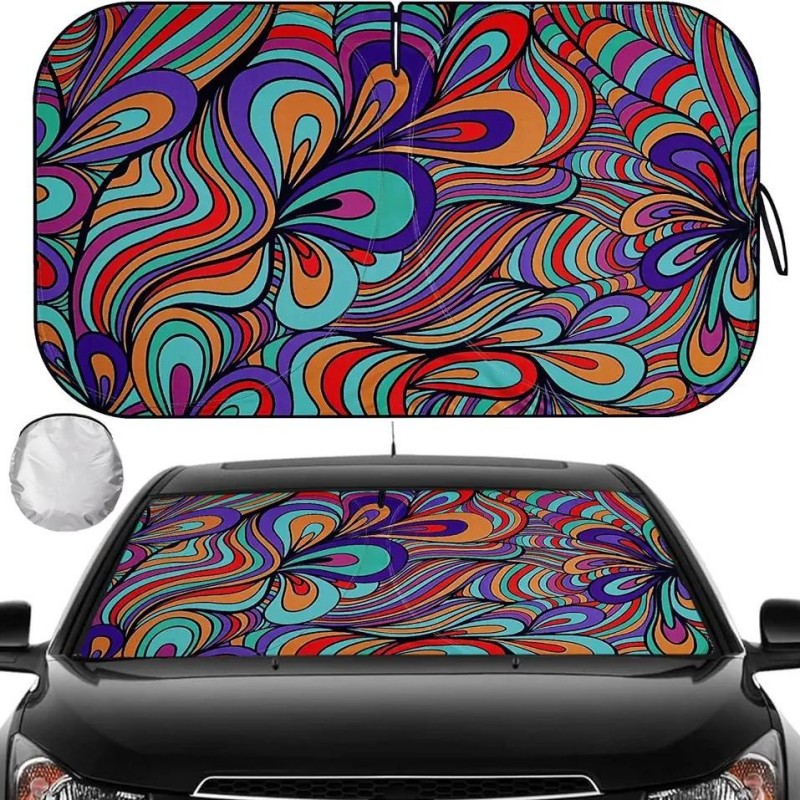
Understanding the Different Types of Car Shade
Car shades come in various styles and materials to suit different needs. Understanding the types available can help you make an informed decision.
Retractable Shades
Retractable shades are convenient and practical. These shades are fitted inside the vehicle and can be easily pulled down when needed. They often use a spring mechanism that allows easy retraction, making them a user-friendly option for drivers who may not want to deal with setting up a shade every time they park.
Folding Sunshades
Folding sunshades are probably the most common type of car shade. They’re lightweight and typically made from reflective material that blocks sunlight effectively. The best part is that they can easily fold up to fit inside a glove compartment or trunk when not in use. Their setup usually involves placing them in the front or rear windshield, making them easy to deploy and remove.
Static Car Shades
Static car shades are permanent installations that provide a more long-term solution for sun protection. These shades can be a fixed window film or a shade made from fabric that is permanently attached to the vehicle’s windows. Static shades are generally more labor-intensive to install, often requiring professional help, but they offer continuous sun protection without the need for regular setup.
Reflective Shades
These shades are designed specifically to reflect sunlight away from the vehicle. They are typically made from materials that can withstand high temperatures and minimize heat buildup in the vehicle’s interior. Reflective shades are useful in incredibly sunny regions, as they can significantly reduce interior temperatures.
Celestial Shades
While not as common as the other options, celestial shades are innovative products that can block the sun from the roof of your car. These shades are especially useful for SUVs and trucks, where the sun can be particularly harsh. They usually come with adhesive or magnetic features for easy attachment to the vehicle’s inner roof.
The Materials Used in Car Shades
The effectiveness and durability of a car shade largely depend on its materials. Here are some common materials used:
Reflective Material
Reflective materials are designed to bounce sunlight away from the car. They reflect ultraviolet (UV) rays and help maintain a cooler temperature inside the vehicle. Commonly used materials include mylar and aluminum foil, which are both excellent at blocking heat and preventing UV damage.
Fabric Shades
Many fabric shades are made from thick polyester or nylon materials designed to block sunlight effectively. These shades can provide a more aesthetic appeal and offer various styles and designs. However, they may not reflect heat as well as some reflective options.
Static Window Films
Static window films typically utilize a polymer material that adheres directly to the glass. These films provide an excellent barrier against both UV rays and heat. Many of these films also come tinted, which adds an additional layer of privacy while keeping the vehicle cool.
Magnetic Shades
Some modern car shades use magnetic materials that can be easily attached and removed from the vehicle’s windows. These innovative options provide a custom fit and can effectively block sunlight. Being removable makes them a good choice for those who prefer versatility.
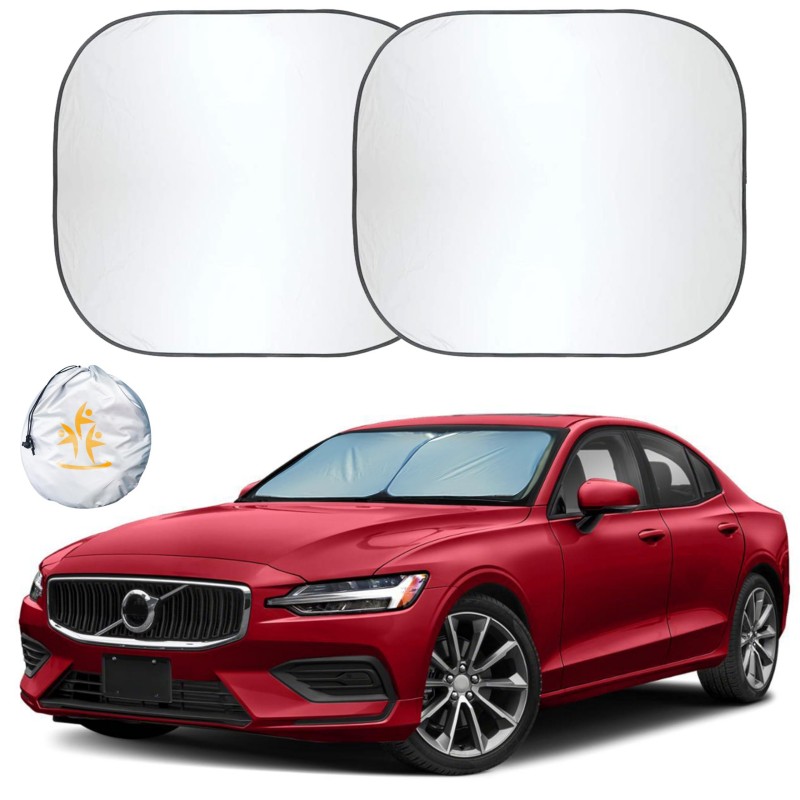
Factors to Consider When Choosing a Car Shade
Selecting a car shade goes beyond aesthetics; there are several factors to keep in mind during your search:
Effectiveness at Heat Reduction
One of the primary purposes of a car shade is to lower the temperature inside your vehicle. When shopping for a car shade, look for products that specify their heat reduction capabilities, typically measured in percentage form. Higher percentages indicate better performance.
Ease of Use
A car shade should be convenient. Whether you opt for retractable or folding options, they should be simple to set up and take down without much hassle. Shades that fold compactly are also preferable as they can fit into your car without taking up too much space.
Material Quality
The longevity of a car shade often depends on the materials used. Look for UV-resistant and durable materials that can withstand temperature variations and potential wear and tear.
Size and Fit
It’s crucial to measure your vehicle’s windows accurately to ensure a proper fit. A car shade that is too small will not provide adequate coverage, while one that’s too large may not sit properly, resulting in ineffective protection.
Brand Reputation
Researching brands that specialize in car accessories can also lead you to quality options. Read reviews and possibly seek recommendations from friends or family who have used car shades successfully in the past.
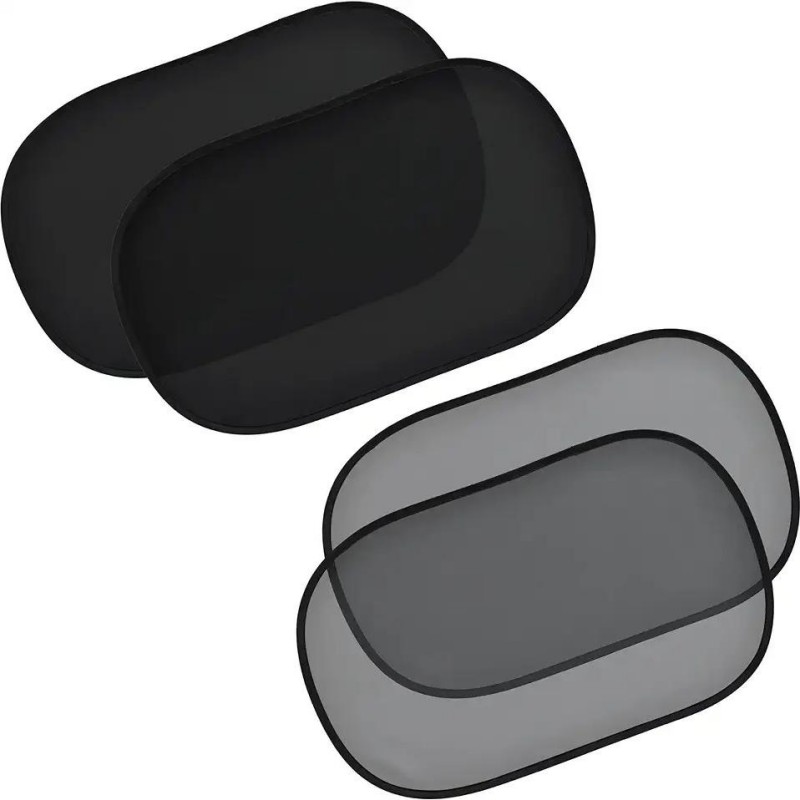
How to Install and Use Car Shades Correctly
Once you have chosen the ideal car shade, knowing how to install and use it properly is critical for its effectiveness:
Folding Sunshades
- Unfold the shade flat and check for any creases or damage.
- Position the shade against the windshield or rear window.
- Adjust it to fit securely and block maximum sunlight exposure.
- When done, remove the shade, fold it, and store it in its designated bag or compartment.
Retractable Shades
- Ensure the installed brackets or adhesive are secure on the window frame or dashboard.
- Pull the shade down from its housing when you intend to use it.
- Release the shade to retract when no longer needed, ensuring it rolls back correctly.
Static Shades
- Clean the windows properly using soap and water to remove any debris.
- Measure and cut the static film according to window size.
- Apply the static shade carefully and smooth out any bubbles that may form.
Maintenance Tips for Longevity
Taking care of your car shade can extend its lifespan and maintain its effectiveness:
Regular Cleaning
Make a habit of cleaning your car shades regularly. Dust and dirt can accumulate and diminish their performance. For reflective shades, a damp cloth with mild soap is often enough to clean them effectively. Avoid using harsh chemicals that might damage the material.
Proper Storage
When not in use, ensure your car shade is stored correctly. For folding shades, placing them back in their original casing helps maintain their shape and prevents damage. Avoid shipping them tightly with other objects, which can lead to creases.
Inspection for Damage
Regularly check your car shades for any signs of wear or damage, such as tears or fading. Addressing minor issues early on can prevent further damage and ensure you always have effective sun protection.
Adhere to Manufacturer’s Instructions
Follow any specific maintenance procedures provided by the shade’s manufacturer. Each product may have unique requirement guidelines for optimal care.
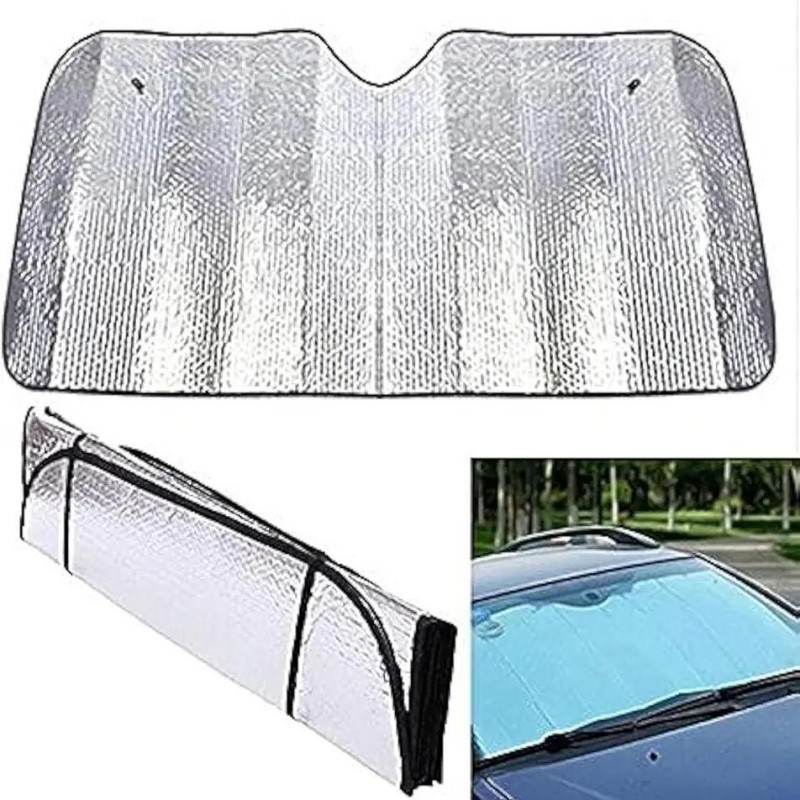
Benefits of Using Car Shades
Investing in a quality car shade comes with numerous benefits that can have both immediate and long-term returns:
Protection from UV Rays
One of the most significant hazards of sunlight exposure is the harmful UV rays that can cause skin damage. Car shades act as a protective barrier, significantly reducing the UV exposure when entering or exiting the car.
Preservation of Interior Materials
Car seats and dashboards, especially those made from leather and vinyl, can degrade over time when exposed to direct sunlight. A car shade serves as a safeguard, preventing fading and cracking of expensive interior materials.
Enhanced Comfort
Nobody likes stepping into a hot car after leaving it parked in the sun. Car shades help maintain a comfortable temperature, ensuring that you don’t have to suffer through unbearable heat the moment you enter your vehicle.
Improved Fuel Efficiency
When your vehicle’s interior remains cooler, air conditioning systems don’t have to work as hard to cool down the cabin. This can lead to slightly improved fuel efficiency, making it an eco-friendly option in the long run.
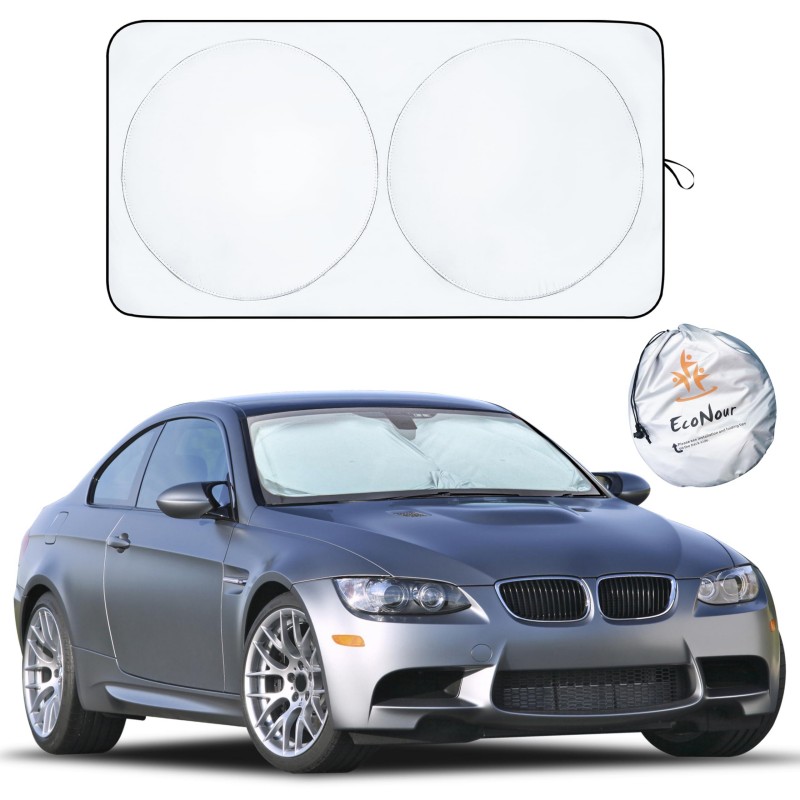
Conclusion
Choosing the right car shade is vital for anyone looking to prolong their vehicle’s lifespan and ensure a comfortable driving experience. By understanding the various types and materials of car shades, as well as factors like heat effectiveness and ease of use, you can find the perfect fit for your vehicle’s needs. Implementing a thoughtful approach to selecting and maintaining a car shade allows for maximum protection against the harmful effects of UV rays and the blistering heat of the sun. Not only will your vehicle benefit, but you’ll also enjoy enhanced comfort every time you step inside. Ultimately, investing time and resources into finding the perfect car shade is beneficial for your car’s longevity and your wellbeing.
